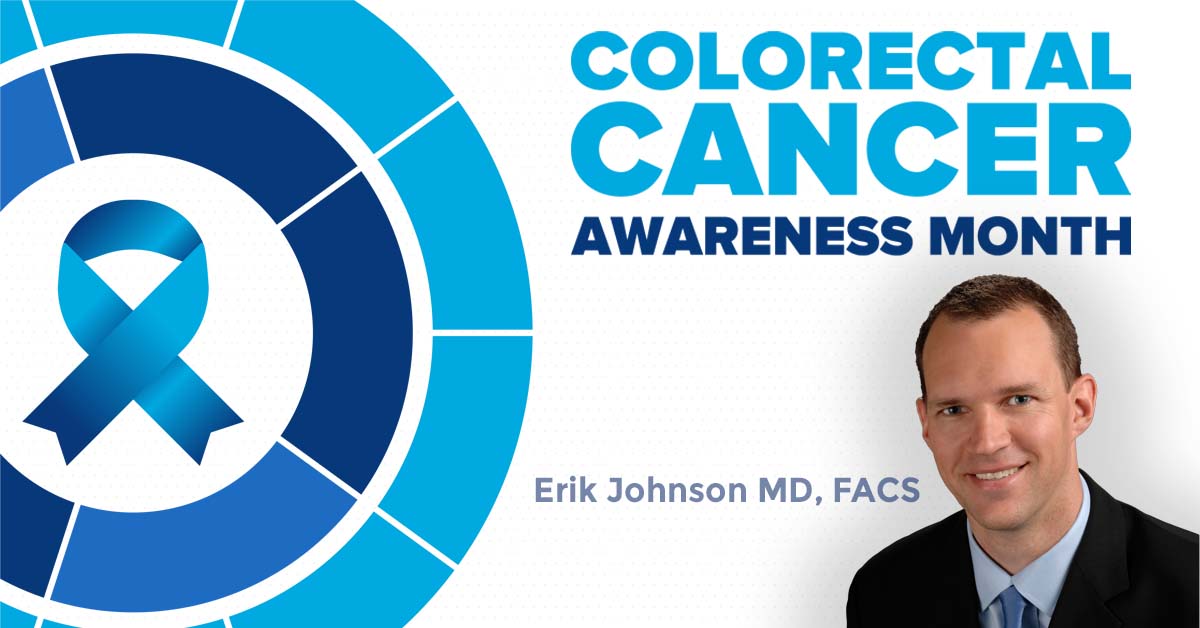
Getting screened is vital.
The month of March is recognized as National Colorectal Cancer Awareness Month, during which health care providers who treat patients with colon and rectal diseases have an opportunity to educate their communities about these diseases and promote awareness about colorectal cancer screening, prevention, and treatment.
“Everyone is at risk for colon cancer,” says Dr. Erik Johnson of Aurora BayCare General & Vascular Surgery. “It’s the third most common cancer diagnosed in the United States and the second leading cause of cancer death.”
The American Cancer Society estimates 106,180 new cases of colon cancer and 44,850 new cases of rectal cancer will be diagnosed in 2022.
The recommended age for colorectal cancer screening or colonoscopy has been lowered from 50 to 45 due to an increase in colorectal cancer cases among young and middle-aged people.
Colonoscopy is considered the “gold standard” for screening for colorectal cancers, Johnson says. Other screening options include:
- Fecal occult blood test and fecal immunochemical test
- Computed tomography (CT or CAT) colonography
- Stool DNA test
“A colonoscopy is going to be the way to definitively diagnose if there are any precancerous polyps in the colon or not,” he says. “That’s why we recommend a colonoscopy as the best test, because not only is it a test to look for something but it is also a treatment. Polyps, potential precursors to colorectal cancer, can be removed during a colonoscopy, thereby preventing colon cancer from forming.”
Colorectal cancer is preventable, Johnson says, adding that actions such as incorporating a healthier diet and regular exercise or physical activity into one’s lifestyle offer preventative benefits.
“But some risk factors such as age and genetics can’t be avoided,” he says.
While lifestyle changes are beneficial to colorectal cancer prevention and overall health, they do not replace screening tests.
That’s because colorectal cancer can take 10 years to grow before generating symptoms, Johnson says. That makes it critical to detect and remove precancerous polyps at least once every decade.
Some symptoms of colorectal cancer include but are not limited to:
- A noticeable change in bowel habits, including diarrhea or constipation or a change in the consistency of the stool
- Rectal bleeding or blood in the stool
- Persistent abdominal discomfort, such as cramps, gas or pain
The average individual should be checked for colorectal cancer at age 45 and continue regularly scheduled checks thereafter. However, tests may be required earlier or more frequently depending on the following factors:
- You or a close relative have had colorectal polyps or colorectal cancer
- You suffer from an inflammatory bowel disease such as Crohn's or ulcerative colitis
- You suffer from a genetic syndrome such as familial adenomatous polyposis
Questions or concerns about colorectal cancer or appropriate screening tests? Contact your doctor for more information.